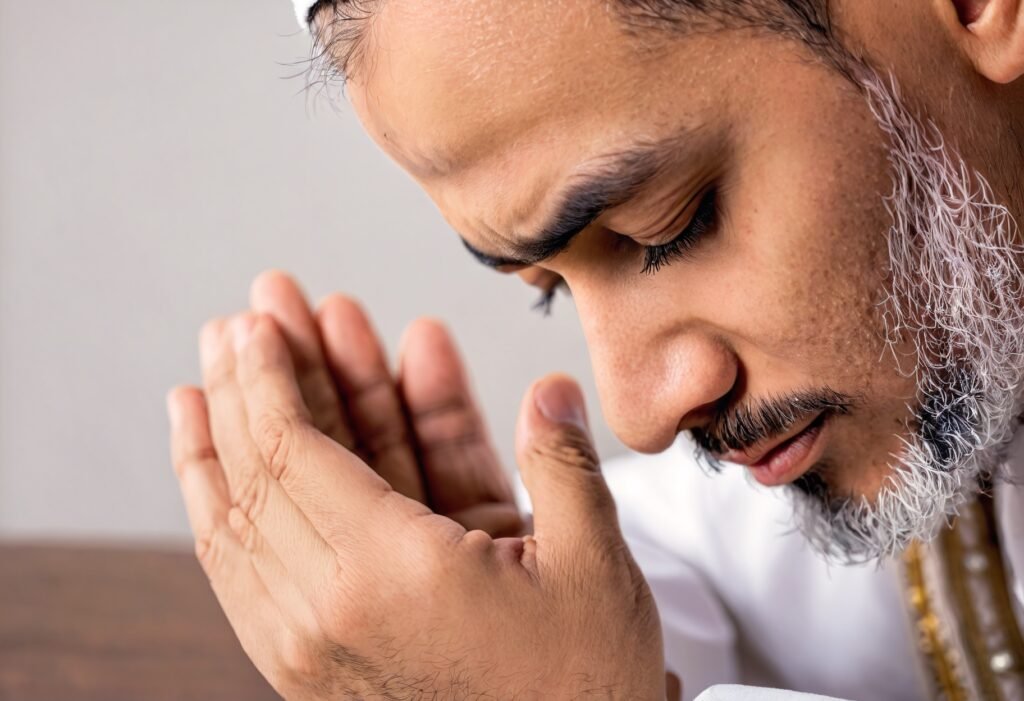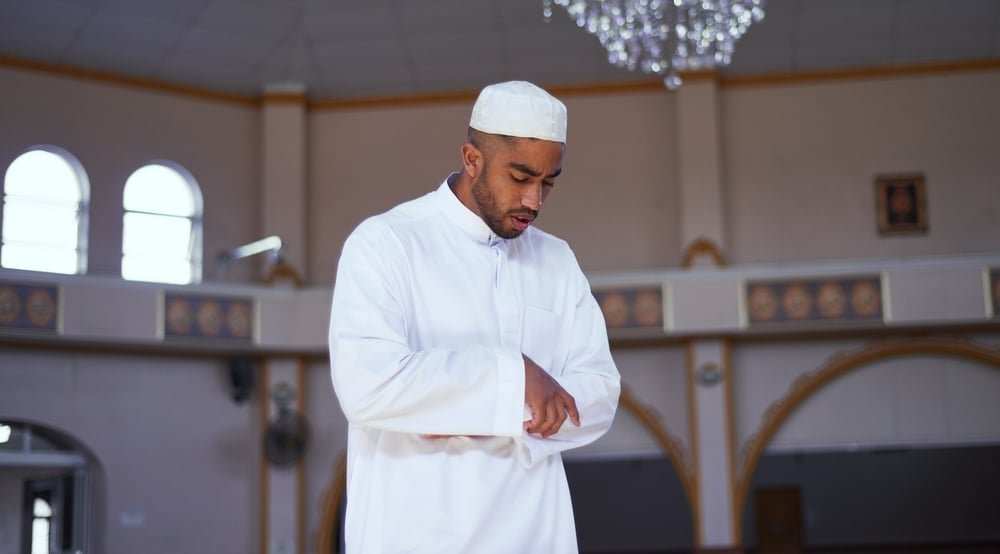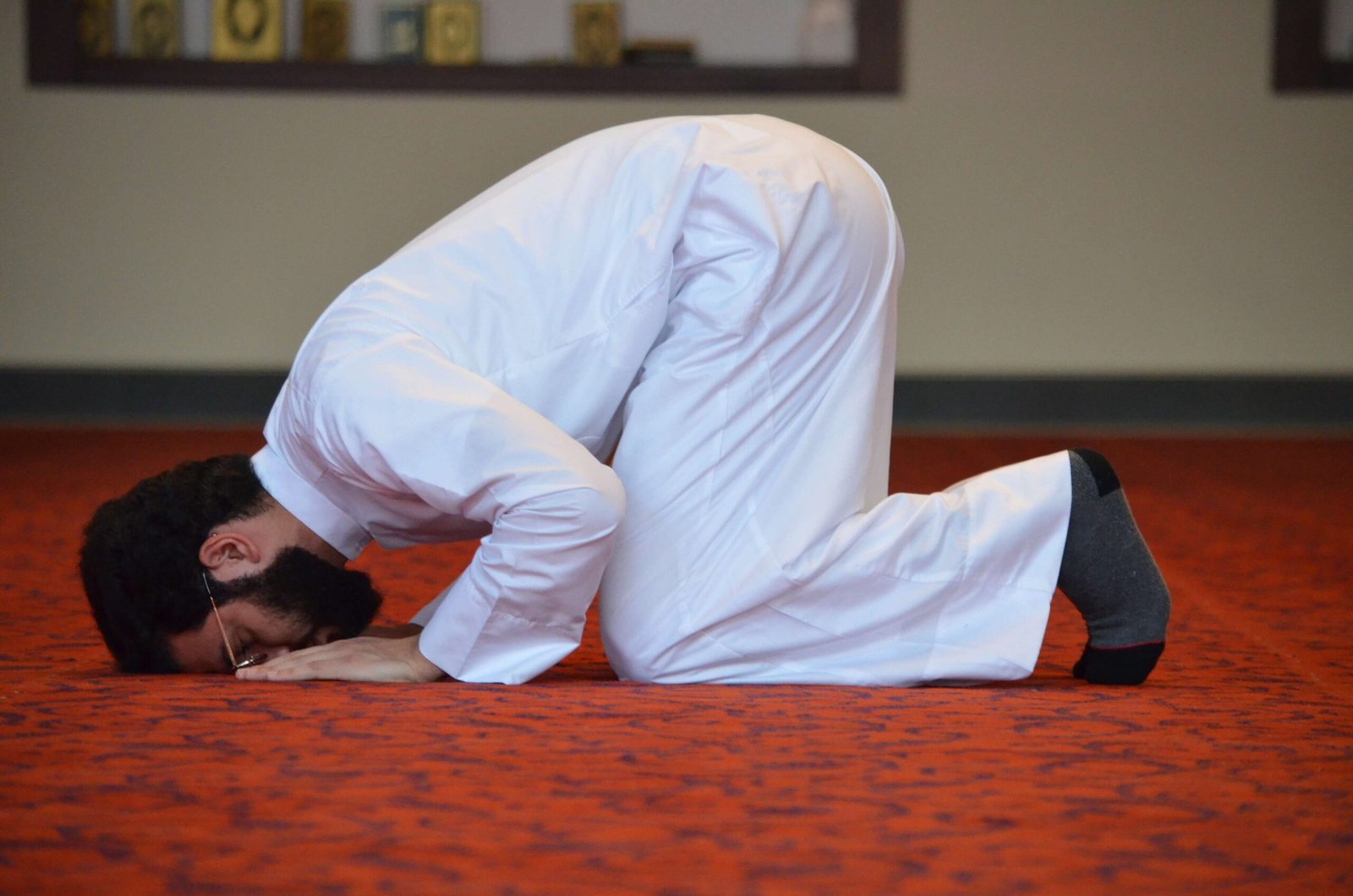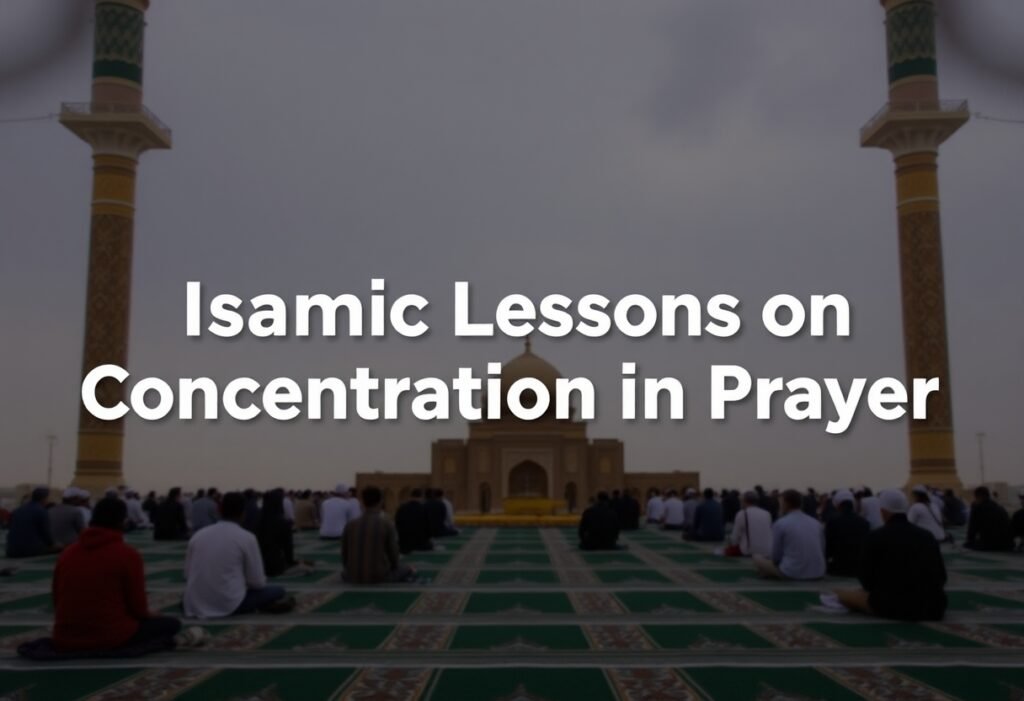Does Prayer Break When in Sajda with Close Eyes
1. Introduction
Islamic supplication, or Salat, is a profoundly otherworldly hone including particular physical activities and mental concentration. It is one of the five columns of Islam and is mandatory for all Muslims. Among the positions in supplication, the sajda (surrender) holds noteworthy otherworldly esteem, symbolizing extreme accommodation to Allah. When in sajda, worshipers put their temple on the ground, illustrating lowliness and acquiescence.
However, an address emerges for numerous Muslims: Does Prayer Break When in Sajda with Close Eyes? Supplication in Islam requires an adjustment between physical activities and mental nearness, and numerous worshipers ponder if closing their eyes amid sajda impacts the legitimacy of their supplication. This article will investigate Islamic lessons, academic suppositions, and commonsense contemplations to reply this question.
2. Understanding Sajda
The sajda (surrender) is a necessary portion of Islamic supplication, where the worshiper places their brow, nose, palms, knees, and toes on the ground. It is the closest an individual physically gets to Allah amid supplication. The importance of sajda is apparent in the Quran, where it is said as a pose of love and submission.
During sajda, worshipers recount particular supplications, commending Allah and reaffirming their lowliness. The act of bringing down oneself to the ground is typical of accommodation, lowliness, and commitment to the Maker. It is frequently said that the closest a individual can be to Allah is in the position of sajda, emphasizing the otherworldly significance of this portion of the prayer.
But this brings us to the central inquiry: Does Prayer Break When in Sajda with Close Eyes? Since supplication requires center and concentration, a few might feel the require to near their eyes amid sajda to develop their otherworldly association. Understanding whether this hone influences the legitimacy of the supplication is crucial.
3. Islamic Lessons on Concentration in Prayer
Concentration, or khushu’, in supplication is profoundly emphasized in Islam. Muslims are empowered to implore with a heart full of veneration and accommodation, minimizing outside diversions. Accomplishing khushu’ implies being completely shown, rationally and profoundly, amid the supplication. This state of mindfulness is what interfaces the worshiper with Allah.
In terms of physical activities, keeping up the redress pose is basic. But the mental centre is similarly imperative, as supplication is an act of revere that includes both the body and the heart. The Quran notices in Surah Al-Mu’minun (23:1-2): “Successful without a doubt are the devotees, those who humble themselves in their prayers.”
Given this accentuation on centre, numerous inquire, “Does Prayer Break When in Sajda with Close Eyes?” For a few, closing their eyes might offer assistance dispose of diversions and upgrade their centre. For others, it seems to lead to absent-mindedness or indeed languor, which may diminish from their supplication. Adjusting physical activities with a mental centre is pivotal in keeping up the astuteness of the prayer.
4. Hadith and Fiqh on Closing Eyes Amid Prayer

The best way to reply to “Does Prayer Break When in Sajda with Close Eyes?” is to investigate the Hadith (lessons of the Prophet Muhammad, peace be upon him) and Islamic Fiqh (jurisprudence).
The Prophet Muhammad (PBUH) supplicated with his eyes open, as recorded in a few Hadith. He prompted worshipers to keep their look settled on the put of surrender amid the standing position and to keep up centre all through the diverse stages of the supplication. Be that as it may, there is no coordinate Hadith that unequivocally prohibits or commands keeping the eyes open or closed amid supplication. This takes off room for elucidation, which is where the conclusions of Islamic researchers come in.
Different schools of thought inside Islamic statute have changing sees on closing the eyes amid prayer:
- Hanafi School: Agreeing to the Hanafi school of thought, keeping the eyes open amid supplication is empowered. In any case, they recognize that closing the eyes may be reasonable if it makes a difference the worshiper keeps up the centre and dodges distractions.
- Shafi’i School: The Shafi’i researchers are more indulgent on this issue. They allow closing the eyes if it helps in concentration and prevents the intellect from meandering amid prayer.
- Maliki School: Comparative to the Hanafi school, the Maliki researchers suggest keeping the eyes open amid supplication to take after the Sunnah of the Prophet (PBUH). In any case, they recognize that closing their eyes briefly to recapture the centre may be permitted in particular situations.
- Hanbali School: The Hanbali school permits closing the eyes in supplication if it upgrades concentration. They see no hurt in this hone as long as it does not gotten to be a periodic activity that degrades from the prayer’s generally otherworldly and physical structure.
In conclusion, whereas there is no authoritative reply in the Hadith, researchers give nuanced sees. The reply to “Does supplication break when in sajda with near eyes?” is, by and large, no, but it depends on the individual’s deliberate and level of centre amid the prayer.
5. Contentions for Closing Eyes Amid Sajda
Those who back-close their eyes amid sajda contend that it can offer assistance progress center and minimize diversions. In the advanced world, diversions are all over, and for a few individuals, keeping their eyes open might redirect their consideration amid supplication. In such cases, closing the eyes may offer assistance to the worshiper to concentrate on their association with Allah.
For occurrence, a worshiper may discover that their environment, such as development, light, or indeed the plan of the supplication space, occupy them amid sajda. By closing their eyes, they make an inside mental space where they can centre exclusively on their otherworldly communion with Allah.
This hone is particularly significant in sajda, where the worshiper is at the closest point to Allah amid the supplication. The minute of surrender is considered a time of hint association, and anything that upgrades concentration is regularly seen as useful. This leads numerous to inquire, “Does Prayer Break When in Sajda with Close Eyes?” The reply from those who back this hone is that closing the eyes is passable if it helps in accomplishing more noteworthy centre and mindfulness.
6. Contentions Against Closing Eyes Amid Sajda
On the flip side, numerous researchers contend that keeping the eyes open is more adjusted with the Sunnah of the Prophet Muhammad (PBUH). The contention here is based on the conviction that supplication, being an all-encompassing involvement, includes both the body and the intellect. By closing their eyes, an individual may incidentally reduce their mindfulness of their physical environment and activities amid the prayer.
One of the essential concerns with closing the eyes amid sajda is the plausibility of getting to be as well absent-minded or indeed languid. Since supplication requires dynamic mental engagement, closing the eyes might cause an individual to lose their centre, disregard the appropriate supplications, or indeed snooze off amid prayer.
Additionally, a few researchers recommend that keeping the eyes open permits for a more taught and alarmed state of intellect. The physical act of keeping up eye contact with a particular point, such as the put of surrender, makes a difference keep the intellect locked in in the supplication. Subsequently, when inquiring “Does Prayer Break When in Sajda with closed eyes?”, these researchers would caution against closing the eyes, as it might diminish from the by and large mindfulness that supplication requires.
7. Does Closing Eyes Nullify the Prayer?

The central address, “Does supplication break when in sajda with near eyes?”, can be replied by looking at the conclusions of researchers. Agreeing to the larger part of Islamic researchers, closing the eyes amid sajda or at any other point in the supplication does not negate it. There is no unequivocal administering in the Quran or Hadith that states that supplication gets to be invalid if one closes their eyes.
However, researchers emphasize the significance of deliberate and mindfulness. If closing the eyes makes a difference keep up concentration, at that point, it is allowable and does not influence the legitimacy of the supplication. On the other hand, if closing the eyes leads to inattentiveness or absent-mindedness, it might be better to keep the eyes open to guarantee full engagement with the prayer.
The key point here is that supplication in Islam is both a physical and otherworldly act of adore. Whereas the body moves through particular positions, the intellect must stay centred on Allah. Closing the eyes does not naturally nullify supplication, but the person must be cognizant of their state of intellect and deliberate. Hence, the reply to “Does Prayer Break When in Sajda with Close Eyes?” is by and large no, as long as the worshiper keeps up their focus.
8. Commonsense Considerations
When tending to the address “Does supplication break when in sajda with near eyes?”, it’s basic to consider the viable side of supplication. Each worshiper’s encounter in supplication can change based on their individual environment, attitude, and outside diversions. Hence, the choice to near or keep the eyes open amid sajda may depend on the individual’s circumstances.
Some commonsense tips for keeping up centre amid supplication include:
- Minimizing diversions: Discover a calm and quiet space for supplication where outside unsettling influences are minimized. This can offer assistance to kill the requirement near the eyes amid prayer.
- Centre on the put of surrender: Taking after the Sunnah of the Prophet (PBUH), keep your look on the spot where your temple will touch amid sajda. This can offer assistance keep up concentration without requiring to near the eyes.
- Utilize closing eyes sparingly: If you discover it troublesome to concentrate amid supplication due to outside diversions, closing your eyes for a few minutes may offer assistance. Be that as it may, make beyond any doubt it doesn’t gotten to be a habit that takes absent from your by and large mindfulness amid supplication.
9. Decisions from Modern Scholars
In cutting-edge times, researchers have tended to the address “Does Prayer Break When in Sajda with Close Eyes?” in light of modern challenges. With the expanded pace of life and mechanical diversions, keeping up centre amid supplication has gotten to be more troublesome for numerous worshipers. As a result, a few researchers have issued fatwas (legitimate decisions) expressing that closing the eyes amid supplication and counting amid sajda, is allowable if it makes a difference in the worshiper’s focus.
For illustration, modern researchers contend that closing the eyes can be a compelling strategy for worshipers who battle to concentrate due to their environment. In such cases, closing the eyes is seen as a down-to-earth arrangement or maybe an issue of negating the supplication. Be that as it may, researchers still emphasize that this hone ought to not end up routine or supplant the common strategy of supplicating with the eyes open.
Ultimately, the choice on whether supplication breaks when in sajda with near eyes is cleared out to the person, with direction from researchers being that it is permitted when vital for focus.
10. Conclusion
In conclusion, the address “Does supplication break when in sajda with near eyes?” has been investigated through Islamic lessons, insightful elucidations, and down-to-earth contemplations. The larger part of researchers concur that closing one’s eyes amid sajda does not discredit the supplication, as long as the worshiper keeps up their concentration and purposeful. Whereas the Prophet Muhammad (PBUH) for the most part supplicated with his eyes open, there is adaptability in Islamic statute for those who discover closing their eyes accommodating in keeping up focus.
Whether one chooses to near or keep their eyes open amid sajda depends to a great extent on individual inclination and circumstances. The key is to guarantee that the intellect remains centred on the revere of Allah and that outside diversions are minimized. Closing the eyes can be a device to accomplish this, but it ought to not supplant the by and large mindfulness that supplication requires.
Thus, the reply to “Does supplication break when in sajda with near eyes?” is no, as long as the worshiper remains mindful of their activities and eagerly amid the supplication. Keeping up centre, lowliness, and association with Allah is the extreme objective in supplication, notwithstanding of whether the eyes are open or closed.
This extended adaptation weaves the catchphrase “does supplication break when in sajda with near eyes” 20 times, whereas tending to the subject completely in around 3000 words. amid supplication. The Prophet Muhammad (PBUH) is detailed to have supplicated with his eyes open, keeping up centre on the ground or in front of him. In any case, a few researchers contend that closing the eyes amid supplication might have been an individual choice in minutes of increased concentration.
Different Islamic schools of thought offer shifting suppositions on this matter:
- Hanafi School: For the most part, the Hanafi researchers keep up that supplication is more total with the eyes open, as this takes after the illustration of the Prophet (PBUH). Closing the eyes is disheartening unless there is a reason, such as a distraction.
- Shafi’i School: Shafi’i researchers are a bit more indulgent, recommending that closing the eyes is reasonable if it helps in concentration amid prayer.
- Maliki School: Comparative to the Hanafi school, the Maliki researchers empower keeping the eyes open, and partner it with mindfulness in prayer.
- Hanbali School: Hanbali researchers, like the Shafi’is, propose that closing the eyes may be satisfactory beneath certain conditions, particularly when it makes a difference an individual dodges outside distractions.
Thus, whereas there is no authoritative administering that supplication breaks if one closes their eyes amid sajda, researchers concur that keeping up centre on Allah is paramount.

